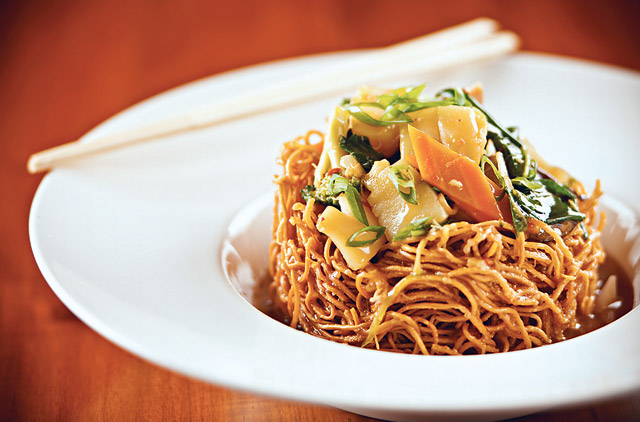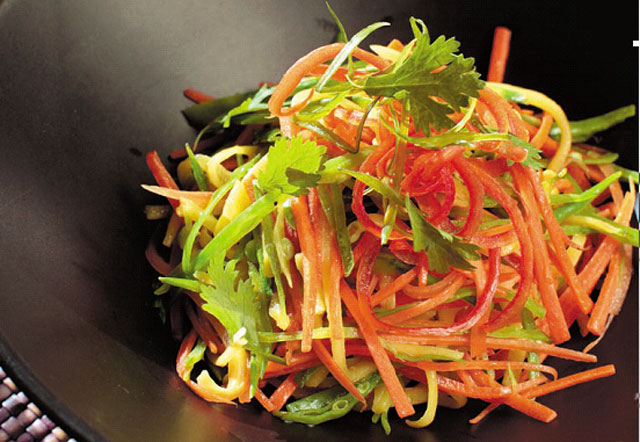Dubai A Dubai Municipality official said retailers here import Maggi from Malaysia and not India. He said no cause for concern has been found during routine tests.
Retailers said they have no official instruction to stop sales of Maggi noodles, samples of which were declared unsafe by officials in India.
However, Maggi made in India is sold at some shops, which said there is no municipality order to halt sales.
India’s food safety authorities have asked all states to test Maggi samples after one state found “very high levels” of lead in the noodles, local media reported.
The capital New Delhi is expected to announce its stand on Maggi later today while Kerala state has already temporarily suspended sales at over 1,000 state-run outlets, Indian media reported said. At least eight more Indian states are testing Maggi samples.
Lynn Al Khatib, a spokesperson for Nestle Middle East, said: “All our Maggi products in the UAE are safe and compliant with the highest quality standards as it has been confirmed by the Dubai Municipality. Nestlé Middle East is importing Maggi Noodles from Malaysia across the Middle East Market. Quality and Food Safety are our top priority and non-negotiable for Nestlé. We perform regular tests on our raw material and finished products to ensure food safety and full compliance.”
In Dubai, hypermarket chains stock Maggi from Malaysia but some smaller shops do offer Maggi from India.
“I am aware of the issue but we haven’t received any information from the [municipality’s] Food Control department regarding the recall of the said products. We are waiting for instruction from the UAE authorities on this issue,” Dhananjay Datar, managing director of Al Adil Trading, told Gulf News.
“Once we receive the instruction, we will immediately remove the products off the shelves and destroy them. These products are imported through proper channels as per UAE regulations.”
Community groceries are selling the noodles for Dh1.50 each or Dh6 per pack of four.
Lulu Middle East said the Maggi noodles sold in their shops are not from India.“All the Maggi noodles sold here in our shops are from Nestle Middle East and sourced from Malaysia. We don’t import from any other country,” V. Nandakumar, chief communications officer at Lulu Group, said.
Additional comments from the municipality were not immediately available on Wednesday.
Stirring up controversy
What began as a routine inspection of Maggi noodle samples in the Uttar Pradesh town of Barabanki in March has developed into a storm that has led to the two-minute noodles swiftly disappearing from the shelves of stores across India.
Barabanki tests: It all began when V.K. Pandey, a 40-year-old Barabanki-based officer of the Uttar Pradesh Food Safety and Drug Administration, collected samples of Maggi from a store on March 10, 2014 for tests to determine whether the manufacturer was complying with its stated claim that the product doesn’t contain any monosodium glutamate (MSG), a taste enhancer.
MSG levels: A test in a laboratory in Gorkahpur revealed the amount of MSG was more than the prescribed level. When Nestle disputed the finding, further tests in one of the best laboratories in Kolkata confirmed the high MSG levels and detected dangerously high lead content in the Maggi samples.
Lead levels: Against the permissible lead content of 0.01 parts per million, the Maggi samples were contained 17 parts per million, Pandey, who had earlier taken on Britannia for the “wrong” labelling of its non-vegetarian cake, said.
Taking action: The discovery has prompted authorities in West Bengal, Maharashtra, Uttarakhand, Haryana, Odisha, Gujarat, Bihar, Assam, Punjab, Karantaka, Delhi Tamil Nadu and Kerala to send samples of Maggi for tests to determine if the snack is safe.
Maharashtra tests: In West Bengal, the Kolkata Municipal Corporation collected samples of Maggi from markets across the city for testing. The Maharashtra unit of the Food and Drug Administration has collected samples from Pune, Nagpur and Mumbai for tests to decide if the product needs to be recalled.
Launching a case: The Delhi government said on Tuesday it would launch a case against Nestle India and impose a financial penalty for “misbranding” because samples of Maggi it tested were found “unsafe”.
The Delhi tests: Only one of 13 samples tested by in a Delhi laboratory was deemed acceptable. Lead levels in 10 samples exceeded the prescribed limit and five were inaccurately branded and contained MSG without a proper declaration.
Kerala’s reaction: Kerala’s food ministry decided to pull Maggi from more than 2,000 state-run supermarkets and grocery outlets. “Last week, we decided not to take fresh stocks until Nestle is cleared of all charges. Around 1,700 outlets have taken the product off their shelves,” said food minister Anoop Jacob.
Bihar FIR: Amid the growing controversy, a Bihar court on Tuesday directed police to register an FIR against two officials of Nestle India and Bollywood stars Amitabh Bachchan, Madhuri Dixit and Preity Zinta, who have promoted the two-minute snack in advertisements. The court in Muzaffarpur said they might be arrested if required.
UP complaint: Uttar Pradesh official Pandey said authorities in the state had filed a complaint case against Nestle’s Nagal Kalan Industrial Unit in Himachal Pradesh, Delhi-based Nestle India and the company’s FMCG managers. “A complete report has been sent to the Food Safety and Standards Authority of India. It would now decide whether a total recall of the product is required or not,” he said.
Nestle India’s comments: Nestle India, in statements posted on its website, contended that Maggi is safe as the results of “internal and external tests show that lead levels are well within the limits specified by food regulations”.
External tests: It said samples of Maggi noodles from 600 product batches were sent to an external laboratory for independent analysis while samples from almost 1,000 batches were tested at a Nestle laboratory.
Cooperating fully: Nestle said it was cooperating fully with authorities after officials in Uttar Pradesh informed it about elevated levels of lead in a sample of Maggi and MSG in products labelled “no added MSG”.
No added MSG: The firm reiterated it does not add MSG to Maggi though the product contains “glutamate derived from hydrolysed groundnut protein, onion powder and wheat flour” that can produce a positive result in a test for MSG.
Lead monitoring: Nestle said it regularly monitors all raw materials for lead and these tests had “consistently shown levels in Maggi noodles to be within permissible limits”.
What is MSG?: Monosodium glutamate (MSG) is a flavour enhancer commonly added to Chinese food, canned vegetables, soups and processed meats. The US Food and Drug Administration (FDA) has classified MSG as a food ingredient that’s “generally recognised as safe,” but its use remains controversial. For this reason, when MSG is added to food, the FDA requires that it be listed on the label.
MSG symptom complex: MSG has been used as a food additive for decades. Over the years, the FDA has received many anecdotal reports of adverse reactions to foods containing MSG. These reactions — known as MSG symptom complex — include: headache; flushing; sweating; facial pressure or tightness; numbness, tingling or burning in the face, neck and other areas; rapid, fluttering heartbeats; chest pain; nausea; weakness.
Short-term reactions: Researchers have found no definitive evidence of a link between MSG and these symptoms. Researchers acknowledge, though, that a small percentage of people may have short-term reactions to MSG. Symptoms are usually mild and don’t require treatment. The only way to prevent a reaction is to avoid foods containing MSG.
What is lead?: Lead is a toxic metal that was used for many years in products found in and around homes. Even at low levels, lead may cause a range of health effects including behavioural problems and learning disabilities.
Most at risk: Children six years old and under are most at risk because this is when the brain is developing. The primary source of lead exposure for most children is lead-based paint in older homes. Lead in drinking water can also add to those exposure levels.
— Compiled from agencies, the Mayo Clinic, US Food and Drug Administration.










